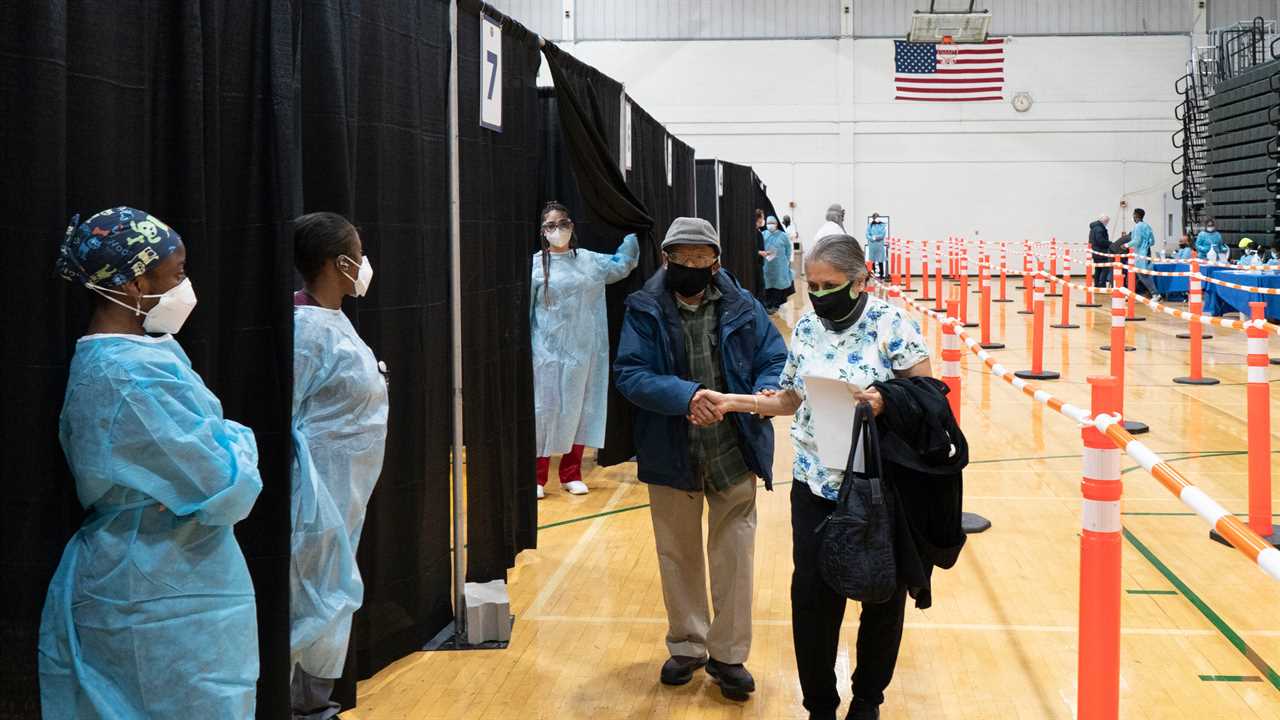
President Biden continues to receive high marks from the public for his handling of the coronavirus outbreak, and Americans are increasingly telling pollsters that they think the worst of the pandemic is behind us. On Thursday, the Consumer Confidence Index, a weekly measure of the public’s economic attitudes, hit its highest level since the start of the pandemic.
And as more vaccines become available, the administration has been beating its own targets on shot distribution.
But the virus is still here — and with case counts rising again in parts of the country, the more aggressive variants of the original Covid-19 strain have grown increasingly prevalent. Mr. Biden is now in a complicated situation: He’s taking a victory lap while pumping the brakes.
“It’s a mixed message,” said Lee Miringoff, the director of polling at Marist College. “There’s an eagerness to pop the champagne cork on one hand, and on the other hand to say, ‘Danger may lurk right around the corner.’ It’s a mixed message, which is hard, and it’s being communicated to a Covid-fatigued country.”
Marist’s most recent poll, for NPR and “PBS NewsHour,” found that just 25 percent of American adults said they wouldn’t get the vaccine when it became available — a lower degree of reluctance than in any prior Marist poll, driven in part by a thawing of opposition among supporters of former President Donald Trump.
But with only 36 percent of respondents saying they had been vaccinated, there is a variety of experiences to contend with. “You have some people who are opening up because they feel they’re vaccinated, and others who still want to see how this plays out,” Mr. Miringoff said. “So there’s lots of categories now, and that makes political messaging more complicated.”
Even as the president announced this week that 90 percent of adults should be eligible for the Covid-19 vaccine by April 19, he said that states should pause their plans to reopen businesses. He called for mask mandates to remain in place, warning that the country might be in danger of “giving up hard-fought, hard-won gains” if governors abandoned them.
Mr. Biden told ESPN yesterday that it would be “a mistake” for the Texas Rangers baseball team to allow a full-capacity crowd to attend Opening Day next week, as the team has said it plans to do. “I think it’s not responsible,” he said.
His comments appeared to be at least partly directed at Gov. Greg Abbott of Texas, who lifted the state’s mask mandate last month and declared that all businesses could reopen.
Latest Updates
- A decline in testing may be masking the spread of the virus in some states.
- Word that a vaccine works well in adolescents raises hopes for normal schooling in the fall.
- Pakistan will allow residents to buy a vaccine dose rather than wait in line.
Dr. Rochelle Walensky, the director of the Centers for Disease Control and Prevention, warned this week of “impending doom” if a new surge in cases were allowed to continue unabated. In an interview on Thursday with “CBS This Morning,” Dr. Anthony Fauci, the nation’s top infectious disease expert and a leader of Biden’s virus response team, echoed Dr. Walensky’s concerns. “Please be careful,” he said. “Don’t declare victory prematurely.”
Air travel has picked back up at small, regional airports and vacation destinations, although those in major cities are still serving only about a quarter to a half of their usual volume.
Some locales, cruise lines and venues are requiring incoming travelers to show vaccination cards proving that they have been inoculated. But the Biden administration has not instituted a policy, leaving it up to the private sector instead.
While hospitalizations and deaths remain far lower than they were during the pandemic’s peak in January, case counts have risen in recent weeks — sometimes drastically — particularly in the Northeast and the Upper Midwest.
Michigan, the site of a pitched debate over virus restrictions last year, leads the country in cases per capita: As of yesterday, seven of the 10 most heavily infected counties in the country are in Michigan. The New York tristate area has also seen a marked rise in cases.
Dr. Irwin Redlener, the director of the Pandemic Resource and Response Initiative at the Columbia University Earth Institute, said that the decline in cases this winter had understandably created a false sense of security.
“The fact is that we are in a very precarious point, in that where we go from here is not at all clear,” he said in an interview. “On some level, yes, we did drop the daily infection rates and fatality rates, but we dropped them to a level that’s not exactly comforting.”
Dr. Redlener said he supported the administration’s emphasis on delivering vaccinations as quickly as possible, and its insistence on keeping mask mandates in place.
“It’s become somewhat of a cliché, but we are running a race between the vaccine and the variants,” he said. “The more time that it takes to get people vaccinated up to a herd immunity level, which people think is about 80 percent, the longer we’re going to see these outbreaks of Covid-19 that will inevitably create more mutations, more variants.”






